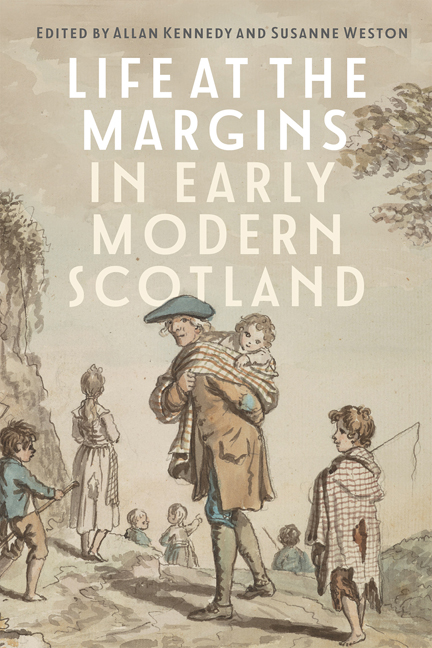3 - The Marginalisation of Gypsies in Scotland, 1573–c. 1625
Published online by Cambridge University Press: 08 May 2024
Summary
In November 1609, the privy council responded to an unusual request: a petition to recognise Moses Faw and his family as ex-Gypsies. Six months previously, parliament had passed the ‘Act anent the Egiptians’, a law permanently banishing all Gypsies from the realm under pain of death. Petitioning the council, Faw praised the act as ‘worthelie set doun’ against the ‘infamous thevis’ who, ‘undir the counterfute name of Egiptianis’, had committed ‘sa mony villanyis in the cuntrey’. He suggested that the act was not intended to be used against ‘honnest, lauchfull, and trew personis’ such as himself, whose ‘birth, educatioun, and residence’ had been in Scotland, and who had withdrawn from the ‘infamous societie’ of Gypsies and disdained their ‘thevishe forme of doing’. Rather, Faw declared his wish to ‘spend the rest of his dayis’ in Scotland as ‘a quiet, modest, trew, and humble subject’. The council assented to the request, and granted a licence exempting Moses Faw and his family from the act.
Less than three years later, Moses Faw and three of his kinsmen – David, Robert, and John Faw – had been arrested, tried, and executed. They became the first individuals to be prosecuted under the ‘Act anent the Egiptians’ by a justiciary court, their crime that of being ‘known’ Gypsies. According to the privy council, Faw and other ‘counterfoote lymmaris callit the Egiptianis’ had found shelter in Selkirkshire, where they were suspected of committing robbery and other crimes, unchecked by local magistrates. Following his arrest, Moses Faw once again petitioned the council, arguing that he and his family were the only Gypsies licensed to live and travel in Scotland, and complaining that he had been apprehended at the instigation ‘of the Egiptianis that callis them selvis Bailzeis [Baillies]’. In fact, the king's advocate and privy council had been attempting to arrest Faw and his kinsmen for at least three months, and over the course of their trial in Edinburgh Moses Faw was found to have been ‘in companie and societie with the Egiptianis’, breaking the terms of his licence. All four men were sentenced to death by hanging.
The case of Moses Faw encapsulates the paradoxical position of Gypsies in Scotland under James VI. From 1573 onwards, they were subjected to a slew of repressive legislation and proclamations that sought to stigmatise and curtail their way of life, culminating in the 1609 ‘Act anent the Egiptians’.
- Type
- Chapter
- Information
- Life at the Margins in Early Modern Scotland , pp. 47 - 61Publisher: Boydell & BrewerPrint publication year: 2024



